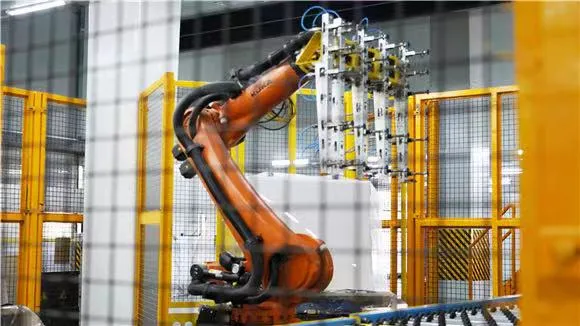 Bridging News
Bridging News
Chongqing Company Sole Supplier for China's C919 Aircraft Glass
Chongqing -The Chongqing Municipal People's Government and the Commercial Aircraft Corporation of China (COMAC), China's primary manufacturer of the C919 aircraft, have recently signed a cooperation agreement to strengthen the large aircraft industry. This pact focuses on enhancing collaboration in industry development, integrating Industry-University-Research (IUR), and advancing material research.
The original panes of the C919's four windshield glasses are supplied by Chongqing Aureavia Hi-tech Glass Co., Ltd. (ATG), a top domestic provider of electronic consumer glass solutions and specialized glass functional materials.

Original aviation glass panes from ATG. (Photo/ATG)
With its intricate systems and long development cycles, aviation manufacturing demands high technical expertise. In the past, raw materials for aircraft had to be imported, and foreign companies faced strict technological embargoes.
Bai Yibo, chairman of ATG, recalled, "In the past, when our civil aircraft needed to replace aviation glass, foreign companies insisted on using their technicians for all operations, even taking away the replaced glass for disposal."
The windshield, a critical but minor component of an aircraft, encompasses nearly all sophisticated technologies in glass manufacturing, making it one of the most challenging types of glass to produce.
To provide the four windshield glass pieces, ATG invested over a hundred million yuan to transition from experiments to production, securing its role as the exclusive supplier for the C919.
"High-performance aviation glass is a unique product, with sizes exceeding two meters, making small-scale trial production impractical. It can only be manufactured on a real glass production line," Bai said.
He explained that once the production line is activated, it must operate continuously for at least five years; otherwise, the furnace will be rendered useless.

Glass production line. (Photo/ATG)
Aviation glass demands higher impact resistance and temperature adaptability than regular glass.
Improving material stability was a top priority. ATG's R&D team added silicon and lithium to the base glass mixture, enhancing the internal structure. This resulted in aluminum-lithium-silicate glass, boosting strength by 50%.
ATG has filed for over 350 patents globally, including 282 invention patents. With full intellectual property rights for its processes, the company dedicates over 5% of its revenue to R&D, around 100 million yuan annually.
The company is now focusing on uniting upstream and downstream enterprises to accelerate the creation of an electronic cover glass industrial cluster in the Liangjiang New Area.
The company also intends to partner with Chongqing University to create an IUR cooperation platform for innovative research. As a competitive high-tech firm, ATG is dedicated to advancing new productive forces.
 Related Stories
Related Stories